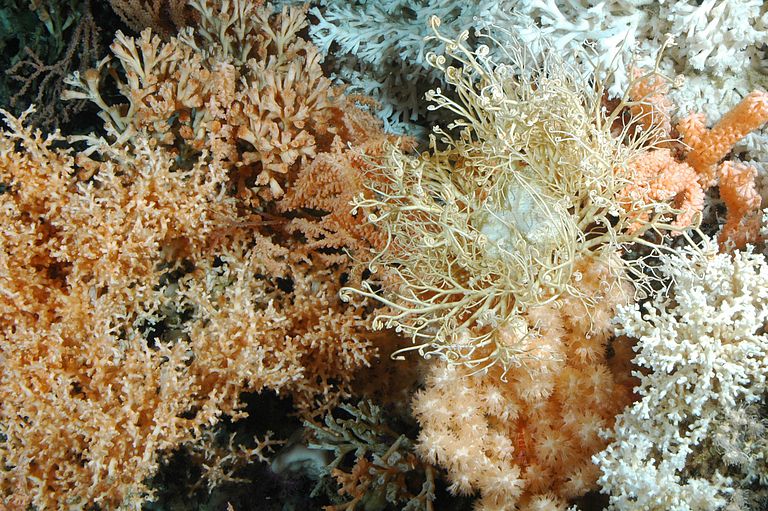Underway in "Changing Oceans"
GEOMAR supports UK Ocean Acidification Research Programme
Since the industrial revolution, humans have increased the amount of carbon dioxide (CO2) in the atmosphere by burning fossil fuels such as coal, gas and oil. The oceans are able to absorb CO2, thus slowing down global warming. But in water, the gas reacts to form carbonic acid. Organisms that build their shells and skeletons with calcium carbonate will find it harder to grow in acidified waters. While climate change already happens around us, scientists are busy to find out how life in the ocean will react to it.
Led by Professor Murray Roberts from the Heriot-Watt University in Edinburgh, 21 scientists and 11 technicians will explore life in the changing environment. During a 35 day cruise with the British research vessel RRS JAMES COOK, they will investigate cold-water coral reefs and the associated fauna in the Mingulay Reef Complex and the Rockall Trough northwest of Scotland.
Janina Büscher, master student in Biological Oceanography at GEOMAR | Helmholtz Centre for Ocean Research Kiel, joins the cruise to provide the scientific team with equipment for on-board acidification experiments and to collect data for her master thesis. High precision gas mixing pumps will be installed on board in order to adjust the cultivation tanks to high CO2 conditions. “We will place samples of living corals into tanks with water at higher temperatures and higher carbon dioxide levels than the corals experience in their natural environment today. Therefore it’s most important that GEOMAR’s high precision gas mixing pumps work properly”, Büscher explains. In addition, she will perform different measurements for her master thesis. “Already onboard ship, I will check the respiration of the corals. In our home laboratories in Kiel, I will later analyze if the fitness of the corals has changed under the simulated future conditions.” These measurements supplement experiments done during a long-term study at GEOMAR as part of the German research project BIOACID (Biological Impacts of Ocean ACIDification). “I am very happy that the collaboration of BIOACID and UKOA brought me onboard JAMES COOK for this cruise”, Janina Büscher states.
To virtually join the „Changing Oceans Expedition“, you can follow the blog at www.changingoceans2012.blogspot.de
Contact:
Dr. Armin Form (GEOMAR, Kommunikation & Medien), Tel 0431-600 1987, aform(at)geomar.de
Maike Nicolai (GEOMAR, Kommunikation & Medien), Tel.: 0431 600-2807, mnicolai(at)geomar.de




